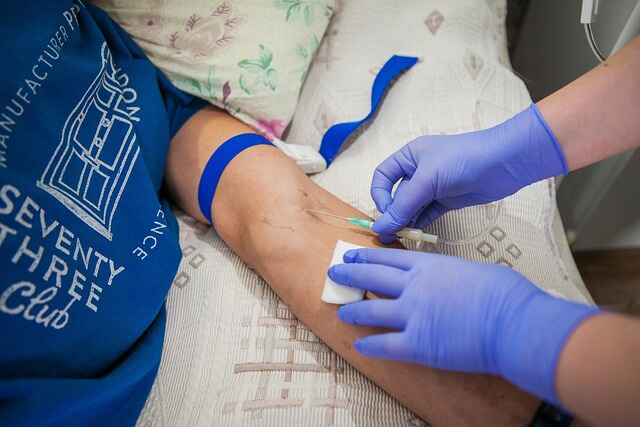What is Celiac Disease?
Celiac disease is a dangerous autoimmune illness that develops in genetically susceptible persons when gluten is consumed, causing damage to the small intestine. It is estimated that one in every 100 individuals worldwide is affected, although only around 30% are adequately diagnosed.
Celiac disease might cause extra major health issues if it is not treated. When you consume gluten, a protein present in wheat and other grains, you get celiac disease (also known as celiac sprue), which affects your digestive tract. However, it is more severe than typical food intolerance. Your small intestine becomes attacked by gluten as a result of celiac disease. Your small intestine is injured during the attack and can no longer function normally.
Symptoms
The signs and symptoms of celiac disease can be very different in children and adults. Digestive signs and symptoms include:
Adult
- Diarrhoea
- Fatigue
- Weight loss
- Bloating and gas
- Abdominal pain
- Nausea and vomiting
- Constipation
- Anaemia, usually iron deficiency
- Decreased bone density (osteoporosis) or softening of the bones (osteomalacia)
- Itchy, blistering rash (dermatitis herpetiformis)
- Mouth ulcers
- Headache and fatigue
- Nerve damage, including numbness and tingling in the legs and arms, possible balance problems and cognitive impairment
- Joint pain
- decreased spleen function (hyposplenism)
Children
- Sickness and vomiting
- Chronic diarrhoea
- Swollen belly
- Constipation
- Gas
- Pale, foul-smelling stools
- Failure to thrive for infants
- Damage to tooth enamel
- Weight loss
- Anaemia
- Irritability
- Short stature
- Delayed puberty
- Neurological side effects, counting attention-deficit/hyperactivity clutter (ADHD), learning disabilities, migraines, the need for muscle coordination and seizures

Causes
Celiac disease runs in families as it is hereditary. A first-degree family (parent, child, or sibling) who has celiac disease has a one in ten chance of getting it too. Although there is no known treatment for celiac disease, most people find that adhering to a strict gluten-free diet can help control their symptoms and encourage intestinal recovery.
Risk factors
Celiac infection can be dangerous in case you don’t get treatment. Complications may include:
- Cancer, counting intestinal lymphoma and little bowel cancer
- Damaged tooth enamel
- Infertility and miscarriage
- Lactose intolerance
- Malnutrition
- Nervous framework issues like seizures or torment and deadness in your hands and feet (fringe neuropathy)
- Pancreatic disease
- Weak bones

Diagnosis
By looking at the patient’s and their family’s medical histories and conducting tests like blood work, genetic testing, and biopsies, a doctor may frequently make the diagnosis of celiac disease.
Antibodies, such as anti-gliadin and endomysial antibodies, that are frequently present in celiac disease patients are detected in the blood by doctors.
A doctor may perform an intestinal biopsy using an endoscope to collect samples of the intestinal lining if other testing reveals celiac disease. To improve the accuracy of the results, they typically require numerous.
Treatment
Stopping the consumption of gluten is the first and most crucial step in the treatment of celiac disease. Although you can’t control how your body responds to gluten, you can stop it from doing so. Your small intestine will start to recover if you stop consuming gluten and will soon be able to absorb nutrients once more. However, to prevent harming your small intestine once more, you must follow a rigorous gluten-free diet for the rest of your life.
Additional therapies could consist of:
- vitamins to replace any major nutritional deficiencies.
- Dapsone is one example of a specific drug used to treat dermatitis herpetiformis.
- For severe inflammation that doesn’t respond to dietary changes quickly enough, corticosteroids are used.
- Follow-up care is ongoing, including routine testing to ensure that the disease is under control.
Diet
- Celiac disease cannot be treated with medication. The most important thing you can do is adjust your diet by eating the following:
- Fruits
- Vegetables
- Meat and poultry
- Fish and other seafood
- Dairy
- Beans and nuts
- Rice
- Corn or maize
- Soy
- Potato
- Tapioca
- Beans
- Sorghum
- Quinoa
- Millet
- Amaranth
- Flax
- Chia
- Nut flours
Care tips
Avoid packaged foods unless they are labelled gluten-free or include no gluten-containing components, such as emulsifiers and stabilisers. Other packaged foods that may include gluten, in addition to cereals, pasta, and baked goods, include beer, lagers, ales, candies, and malt vinegar. You’ll need to learn to read labels carefully and keep an eye out for unintentional contamination.
Also, Read Complete Guide on Dementia: Causes, Symptoms, and Care Tips





